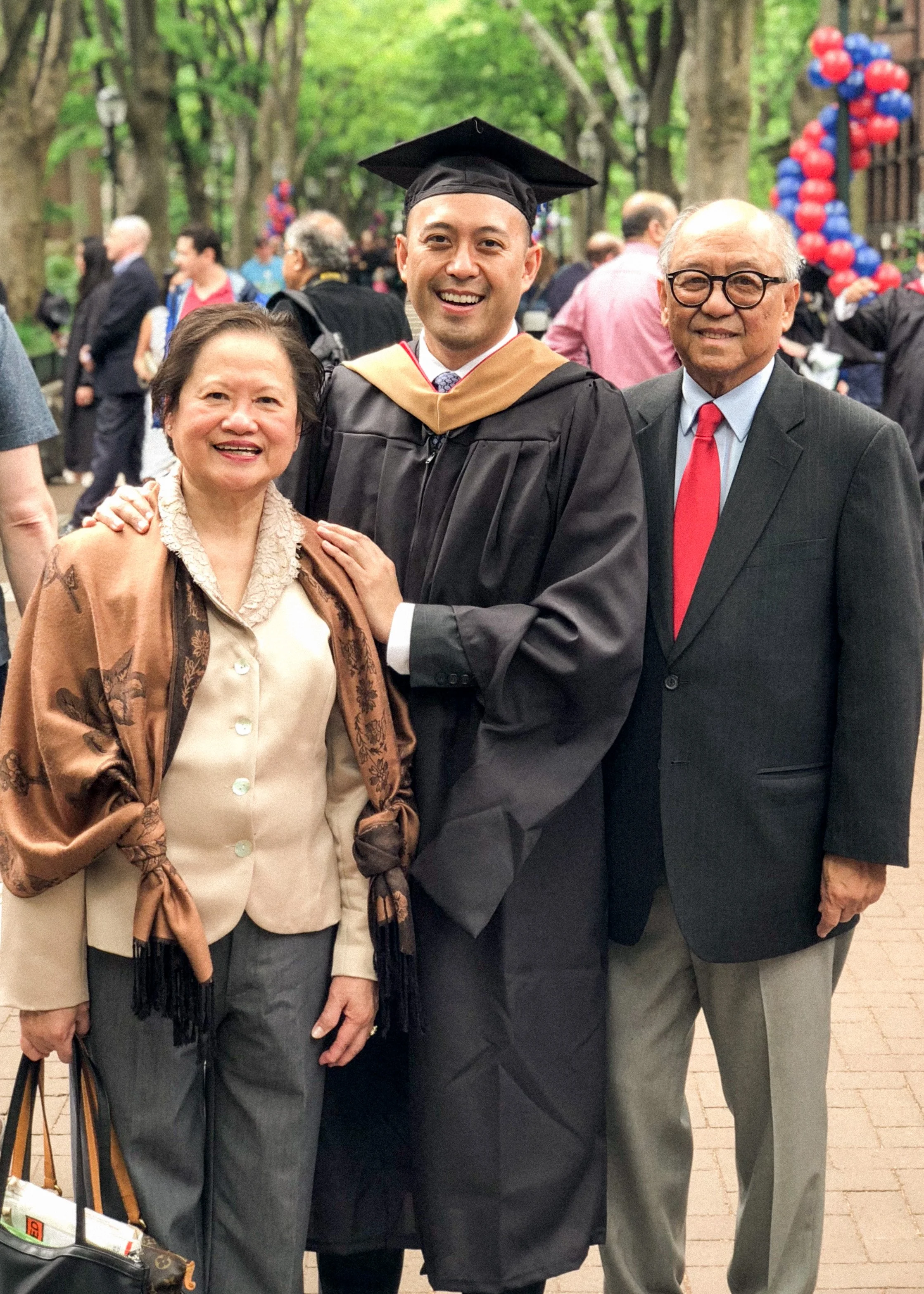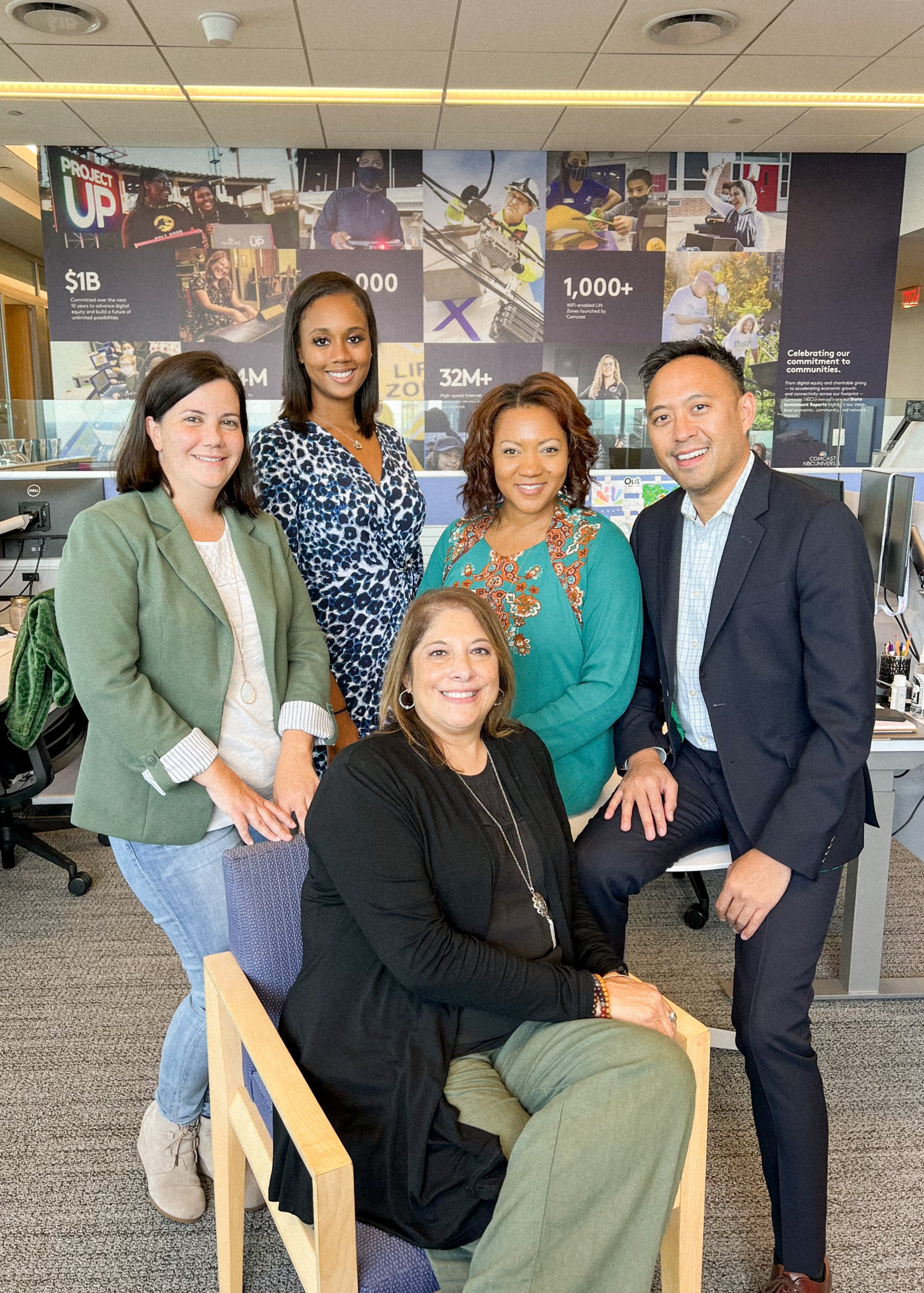How to build your career without quitting your company
**Victor Limjoco is a powerhouse multi-award-winning producer, Wharton-MBA student-turned adjunct faculty, and long-time friend of M.T. Deco. He is currently Executive Director, Content & Partnerships for Comcast’s Local Media Development team, and previously spent more than a decade at NBC Nightly News. We are so honored he sat down with us for a wide-ranging interview where he shares how he charted his own path within a large corporation, and most importantly – his advice for you.
What follows is a lightly edited and condensed version of our chat.**
First things first, did you always have an interest in television journalism?
My parents have always been news consumers. They’re immigrants from the Philippines, and while they knew English when they immigrated and are fully bilingual, they wanted to improve their English skills by consuming as much news and information as possible. For as long as I can remember, they would always be reading the newspaper. They love watching the news on TV. I was always surrounded by news and information. And I always loved television. I remember growing up watching Good Morning America and finishing my night with “Nick at Nite.” There was one summer, I'm pretty sure it was in middle school, that I was creeping closer and closer to the TV. I’m nearsighted and eventually I was so close to the TV that my mom said, “Do you wanna be in the TV!?”
So your mom wasn’t wrong?
(laughs) My mom wasn’t wrong. Exactly. I went to undergrad at Northwestern University outside of Chicago. And I was pre-med because I love science, and I was passionate about the public understanding of science and medicine. At Northwestern, Pre-Med is not a formal major, so I had to declare a major. It really pushed me to think, “Well, what else am I interested in?” Northwestern has a great journalism school, the Medill School of Journalism. I started taking some classes in broadcast journalism, and I fell in love. It all connected for me that I could actually work in journalism. There are hundreds and thousands of jobs that are not just on-air. It would eventually lead to a decade plus career at NBC News.
You had a bit of a winding path for a couple years before landing at NBC News, you were a content analyst at a consulting firm then a few jobs in production. Once you landed at the network, how long were you at NBC News overall?
All in all, if you look at the whole span of my career at NBC News, it would be 13 years. I worked on Weekend Nightly, Weekday Nightly, the website, nbcnightlynews.com. I also spent some time jumping in and out of Nightly. I was on the launch team for a show called Daily Connection. I worked on the website NBC Asian America.
But most of my time was at NBC Nightly News, so it’ll always have a special place in my heart. I’m proud to have covered the gold medal-winning women’s gymnastics team at the London Olympic Games, the aftermath of Typhoon Haiyan in the Philippines, the heroin crisis in America, and the “Miracle on the Hudson” plane crash, to name a few.
When did you realize that you wanted to explore options outside of your role at NBC?
News runs in my blood and I was proud of my time there. There's something about when you go live, it's an absolutely magical feeling. But once I reached my 500th story or my 600th story, it felt kind of similar. I wanted to see what the next step would be. Fortunately, with the support of my colleagues, I was able to get my MBA from the Wharton School at the University of Pennsylvania.
Wait. You went to Wharton while also working at NBC? How did you juggle it?
Yeah, it was a lot. I won't sugar coat it. There are a few different programs at Wharton. There's the full-time MBA program, and then there's the executive MBA program. And I'm proud to say that the executive MBA program at Wharton is the same degree and the same curriculum. It's many of the same professors. It's just a part-time schedule. So I started the program in 2016, and all of our journalists were covering an unprecedented election in 2016. I was juggling my full-time job at Nightly while working part-time towards my MBA. I am incredibly grateful to my executive producer at the time, and my colleagues, because it was a lot to juggle. I distinctly remember being at the 2016 Democratic National Convention with Lester [Holt] in my beloved home city of Philadelphia. I was living in New York at the time, so I was going back and forth between Philadelphia. That week, I was covering the convention during the day, and then at night I had this really big accounting final that I had to study for. So at night I would study for accounting, and then during the day, put my journalism hat back on.
Did you ever sleep?
No! (laughs) It just was two years of basically not sleeping. And for sure, we all juggle lots of responsibilities with family and work but those were two difficult years. But I'm proud of the experience and I'm proud to continue to give back to the school now that I'm an adjunct faculty member at Wharton teaching full-time MBA students.
Cool! What are you teaching?
Lot of startup founders work on their startups and small businesses at Wharton. For example, eyewear startup Warby Parker started as a class project at Wharton. We want to make sure that all of these students and founders are ready to actively pitch to investors. I teach a communication course focused on how to develop your pitch deck, how to refine and focus your pitch, and how to pitch to investors.
So you did two years at Wharton while still working at Nightly. And then what happened? Did you go take a big nap?
When I graduated, for sure, I was able to take a nap. But it also made me realize that I have so much further to go. So I was able to figure out with NBC a few different short-term assignments. I had worked at NBC Strategic Content for a little bit. I worked at Comcast LIFT Labs, which is our startup accelerator on the Comcast side. It was all in order for me to figure out what my next step would be. And that's when I moved over to the Comcast side.
It sounds awesome to me that NBC was like, “Hey, why don't you go try this thing for a while and why don't you go try that out and see what you'd like.” How did you advocate for yourself to be able to do that?
I'm incredibly fortunate over the years to have had great managers and great champions throughout Comcast and NBCUniversal. I'm proud to say that over time as a company, we've learned the value of “gig work.” The idea that for the span of someone's career, it's natural to want to learn new divisions, new jobs, and the “gig” framework helps with that. Sometimes with gig work, you're volunteering a few hours a week. Sometimes, you're doing it full-time for a few weeks or months at a time. It really depends on the gig and the needs of your business.
Do you have advice for people who may find themselves in roles or at companies where they are feeling stuck or like they need to make a move but they don’t know how?
The exciting thing for people graduating or for people who are still figuring out their careers is that your dream job is probably not even invented yet. New platforms, new networks, and new content companies are popping up every single day. And if you try to pigeonhole yourself into thinking there's only one way to get into this very specific job, you're missing out on a whole world of possibilities. I think people get way too focused on, “Is this the right move to get this specific job in 20 years?” There's no assumption anymore that all of these paths are fully linear. We have to be prepared to be flexible and to be able to change.
Tell us a bit about what you're up to currently, and I assume you ended up there as a result of doing some of this gig work?
Yes. Currently I'm Executive Director, Content & Partnerships for Comcast’s Local Media Development team. It’s a really special place to work. We produce mission-driven content that aligns with the values of Comcast NBCUniversal, whether it's diversity, equity, inclusion, sustainability, entrepreneurship, or bridging the digital divide. We get to work on original content that I'm most passionate about.
It sounds like your role is not that different in terms of producing content?
I’m proud to lead the storytelling team for a few brands, including “Voices of the Civil Rights Movement” and “Comcast Newsmakers,” shedding light on issues and topics that people don't know about. For example, at the beginning of the pandemic, we interviewed several nonprofits about the increase in domestic violence and domestic human trafficking. And those were some of the highest performing content on our platform. But we also explore topics like bridging the digital divide for minority communities. I'm incredibly proud of our segments, and we're growing all of our platforms at the same time.
Is there anything that you've taken from your time at Nightly that you've perhaps unexpectedly applied in your new role?
What I continue to use every day is that sense of teamwork that you develop when you work on a daily show. I want to make sure to bring that sense of camaraderie into any workplace. You want to have a team based on a foundation of honesty and trust, that they have your back but they’ll also call out any BS. In the end, you're all working together for a common shared goal. It's something that I think applies for any workplace, any office; you have to be really laser-focused on your team and team building and building the next generation of leaders.
How do you build a team?
You gotta lead with empathy. The best managers I've had in my life were people first, managers second. At the end of the day, we're humans. And I think you really build a team by being grateful to work with this amazing collection of talent and lived experiences. Everyone brings something to the table, they're not just a function of their job role and responsibilities.
Is there any other advice you’d like to give to our audience?
I could do a whole separate talk about mentoring! Make sure it’s really easy for the mentor to fall in love with you. Meaning number one, do your homework. Don't just show up to a mentor session thinking that you can just ask them a lot of questions and then walk away. Whether it is trying to give your perspective as a mentee on a specific business issue, suggesting a new book, or recommending new talent that they can hire. What are you bringing into the mentor-mentee relationship? Number two, really developing and cultivating those relationships over time. Ideally a mentor-mentee relationship is not a one-time only situation. It is a continuing relationship over many months and years. And finally, make sure that they receive your genuine appreciation for their time and their attention.







